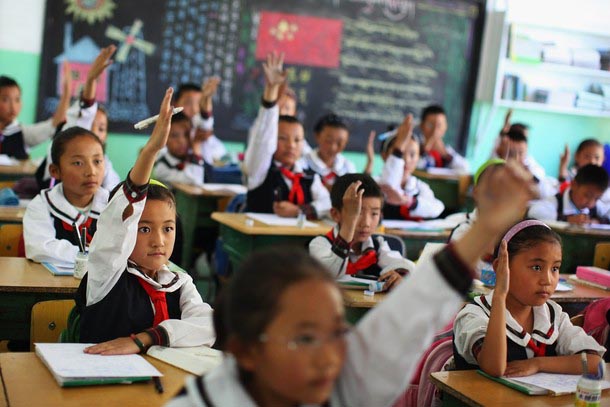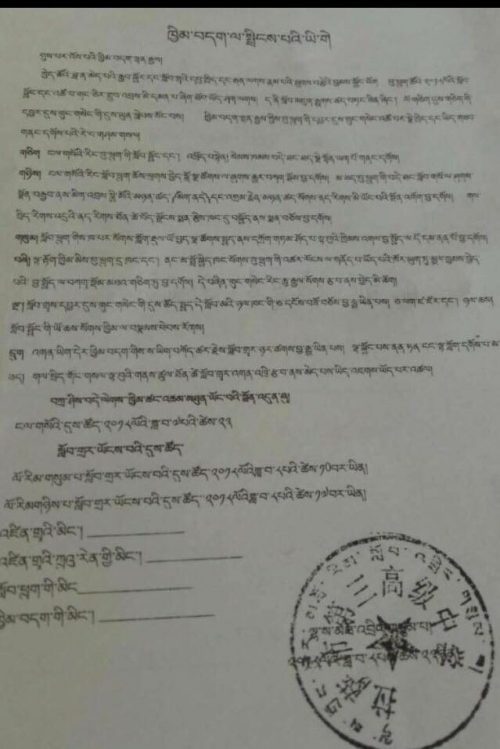
File photo
Chinese authorities in the Tibet Autonomous Region have issued an order to prevent students engaging in any kind of religious activity during their summer break. The school holidays are soon to begin, and the order has been issued to all the schools, with parents being forced sign a six-point guidelines document.
Restricting the religious activities of students in schools around Lhasa, and across the whole of Tibet is not a solo case. During the month of Sakadawa; the fourth month in the Tibetan calendar and the most sacred in Buddhism, students at a school in Chamdo in eastern Tibet were issued a similar warning about their participation in religious festivities during the holy month. Schools were told to inform the education bureau about any pupils who were absent during the festival. Similar prohibitions are also enforced in the Muslim Xinjiang region of China during Ramadam.

Photo: VOT
Despite the fact that the Chinese constitution claims to allow complete religious freedom, asserting that it upholds a policy of non-discrimination when it comes to faith, Tibetans, who traditionally take part in religious activities during certain days of the Buddhist calendar are being restricted. They are issued warnings and often threats by their local governments depriving them of these basic human rights.
China’s extreme abuse of religious freedom in Tibet has raised grave concerns among the international human rights community. The United States State Department’s annual report on international religious freedom, released in May 2018, highlights the Chinese authorities’control over religious freedom in Tibet. The report further details the strict regulations on practicing Buddhism in the Tibet Autonomous Region by asserting state control over religious venues, groups and personnel. As the document reports, the Chinese state even reserves the right to “deny permission for a lama to be recognised as reincarnated.”




 Print
Print Email
Email